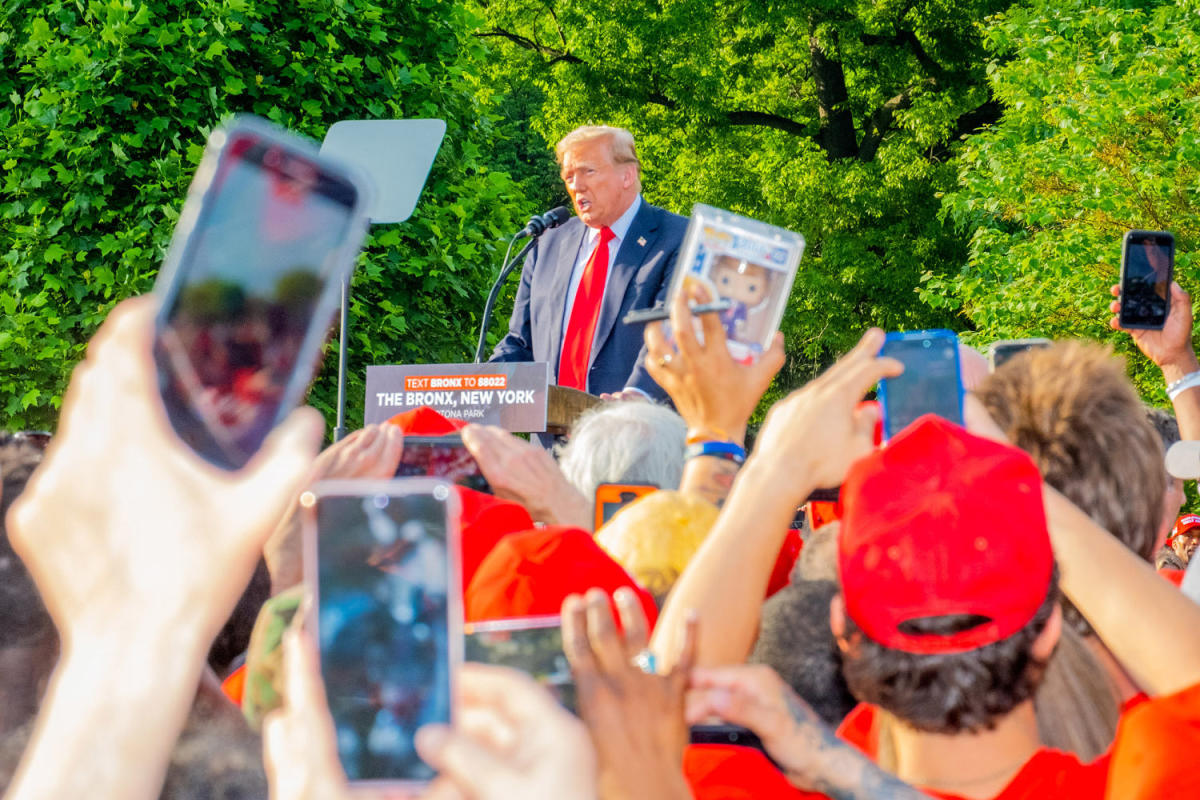Donald Trump drew one of the most diverse rally crowds of his political career on Thursday when he made a pilgrimage to a New York borough that rejected him by a whopping 68 points in 2020.
Winning New York state is the longest of long shots for the former president, while pulling out a victory in the Bronx is inconceivable. But trends that were apparent Thursday at Trump’s rally there echoed broader themes of the campaign that have Democrats nervous headed into the fall: that a small but potentially powerful share of Black and Hispanic Americans, particularly younger voters, may break from President Joe Biden and vote for Trump or a third party or stay home.
NBC News spoke with nearly a dozen Bronx voters ahead of Trump’s speech, many of whom were not there to either attend his rally or a counterprotest. While some expressed disdain for him or said they felt he was crazy, others voiced appreciation for elements of his presidency — like the stimulus checks sent out during the Covid pandemic that bore his name — and said they saw no issue with his making an appearance in the Bronx.
Carolina de la Cruz, a Bronx resident who owns and operates a day care center, was taking some of her kids through Crotona Park on Thursday afternoon to, as she said, help them connect with nature and participate in “tree-hugging.” She was unaware that Trump was set to deliver an address in the park later that evening until she asked a police officer about the increased patrol.
No problem, she said. De la Cruz said that though she identified as a Democrat, she voted for Trump in 2020 and planned to vote for him this fall, too.
“We definitely need a change,” she said, adding that her neighborhood has become more chaotic in recent years and that other friends and family members who were repelled by Trump’s language and approach are now saying “we need” him back.
“They’re forgetting what he said, and they’re more focused on what he was doing in power,” she said.
What’s more, some voters expressed frustration over the influx of migrants crossing the U.S. southern border, particularly those being relocated to New York City, where they say there has been a strain on social services.
Roberto M., a Bronx resident who attended Trump’s rally after work and declined to give his full name, described himself as a moderate and said he was keeping an open mind ahead of the fall and wanted to hear what Trump had to say. He said he voted for Biden in 2020.
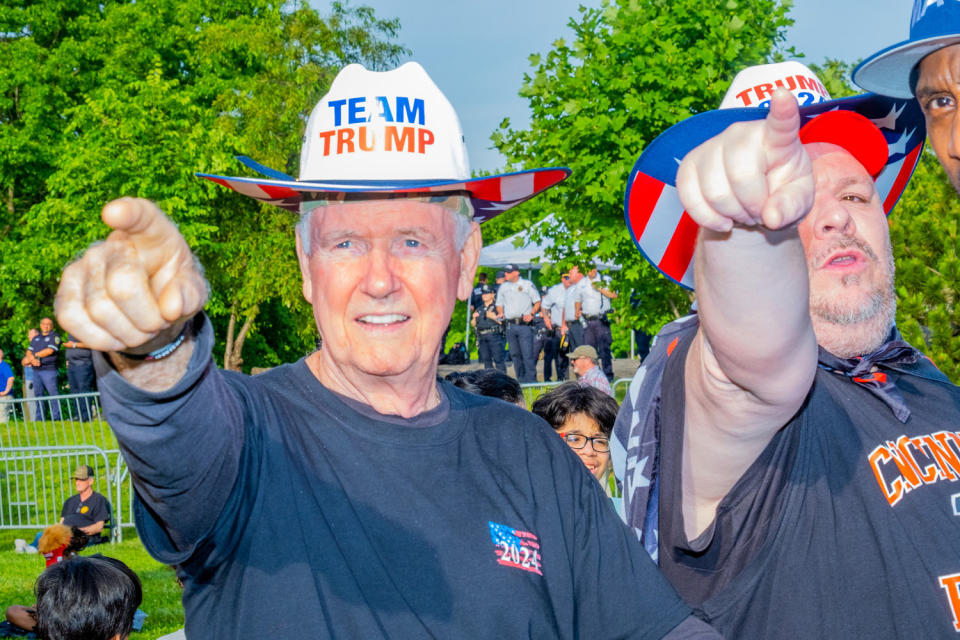
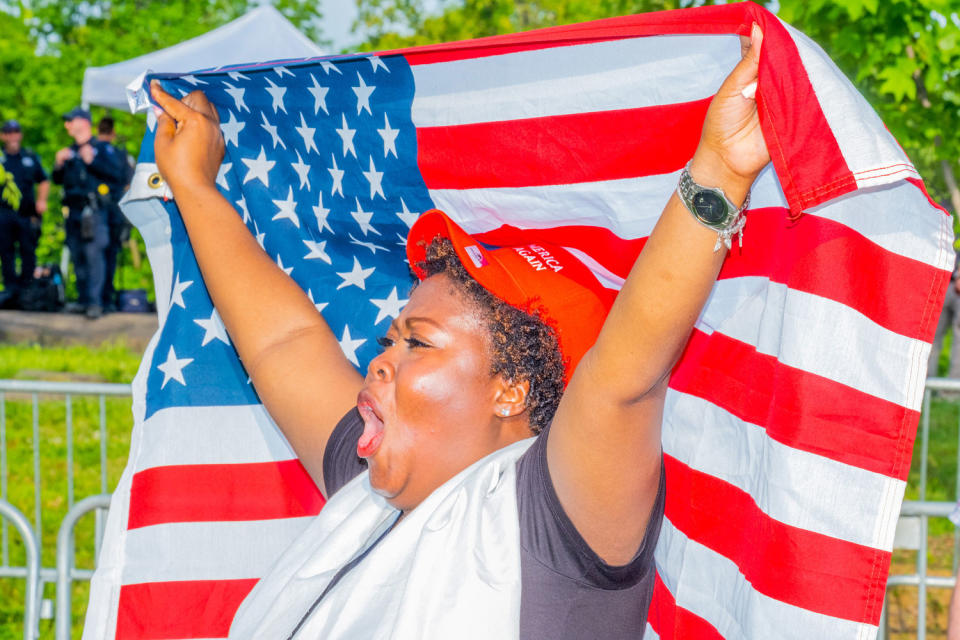
“A lot of people are considering giving him an opportunity,” he said, adding: “I’m all about social justice and people coming here to better their lives. But I feel like in this administration there’s been a lack of control with the influx of individuals that are coming here, especially in New York, where we’re seeing a lot of budget cuts due to trying to accommodate some people to get services.”
The rally was a rare midweek campaign event for Trump, as he has been in court four days a week in Manhattan for his criminal trial, which is coming to a close. A verdict could come as soon as next week.
The South Bronx rally was framed as an effort to reach out to minority voters, and the crowd was much more diverse than those at traditional Trump events. As is the case with other Trump rallies, however, many of the attendees were not from the area where the event took place.
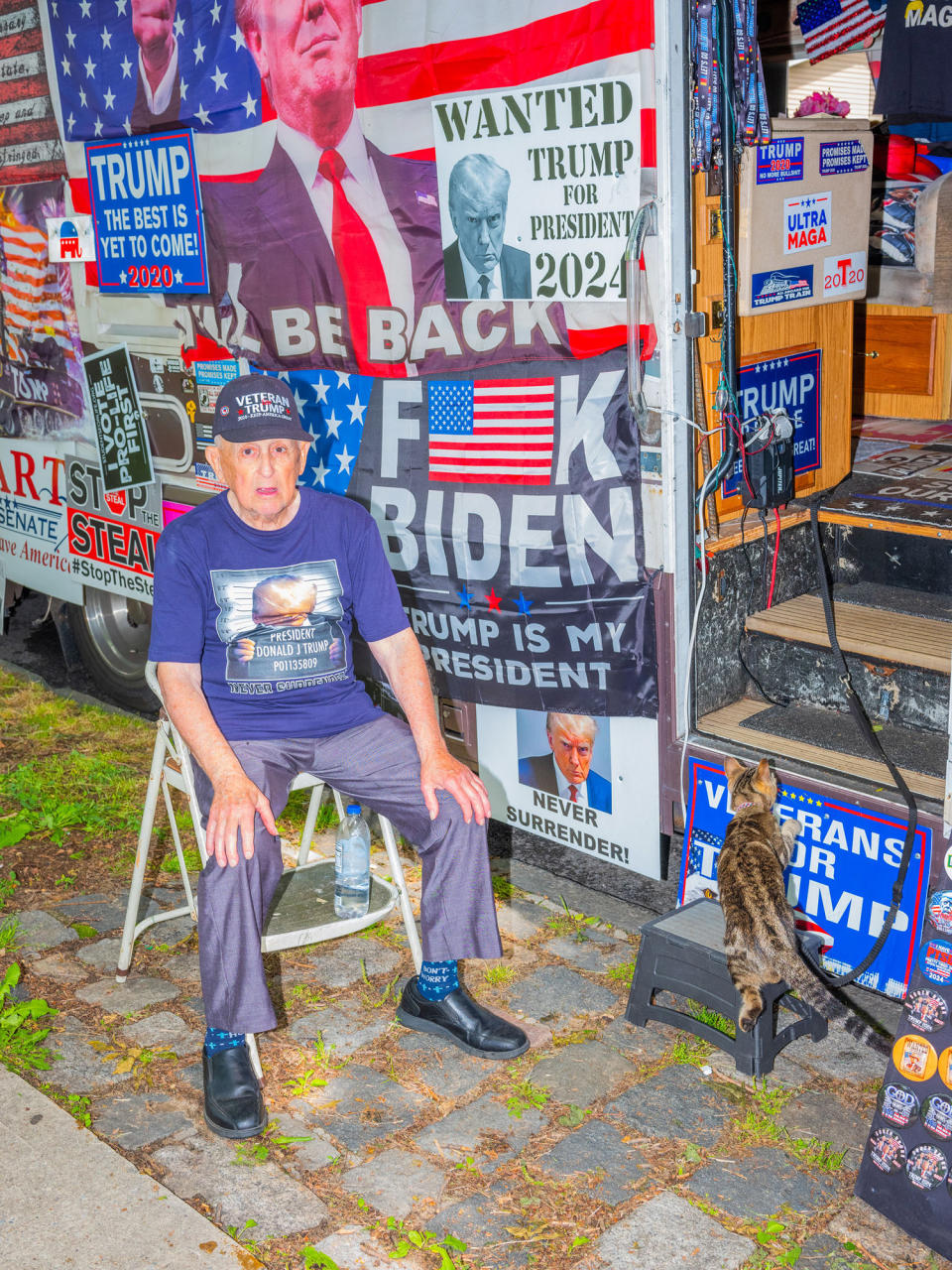
In an event that lasted more than an hour, Trump spoke at length about his business career in New York, railed against Biden’s economic and immigration policies and painted the city, his longtime home, as an apocalyptic dystopia that only he can save.
“As soon as I get back into the Oval Office, I’m going to pick up the phone, I’m going to call your mayor and your governor, and I’m going to say, ‘This is President Trump, and I want to come back and help,” he said, adding he would make the people of New York “very, very happy.”
At various points, chants of “build the wall” and “send them back” broke out when Trump was discussing immigration, including when he said Black and Hispanic Americans were facing the biggest negative consequences of undocumented immigrants’ entering the country.
His pledges included taking “back our parks” and renovating the entire New York City subway system — promising to “make it beautiful again.”
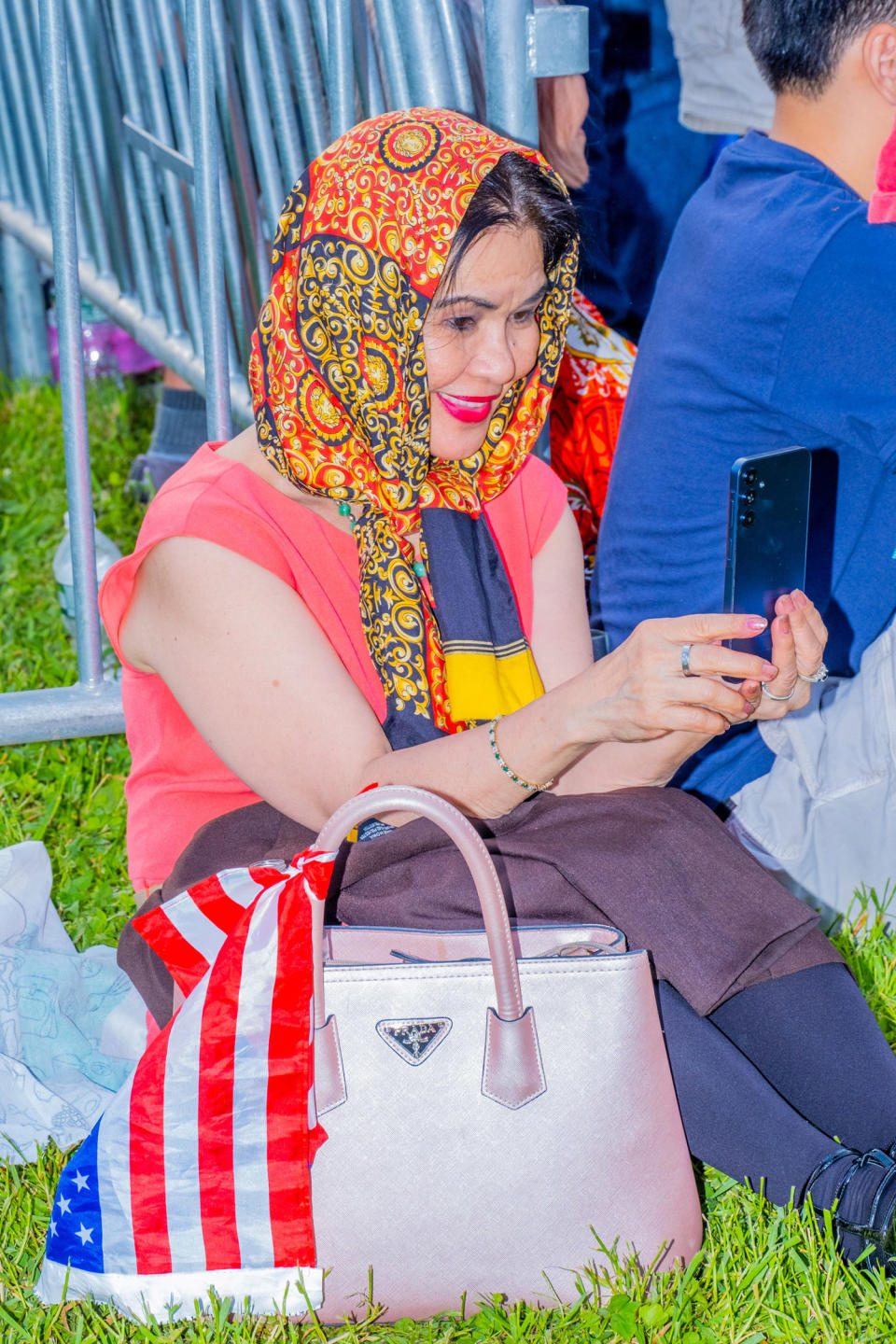
Many members of New York’s Orthodox Jewish community, one of the more Trump-friendly demographics in the city, were in attendance Thursday. When some Jewish attendees began chanting for the return of hostages held by Hamas in Gaza, Trump said: “Many of the hostages that you’re waiting for, and everybody’s waiting for, are dead. And it’s a horrible thing.”
After he repeated the falsehood that the 2020 election was rigged against him and that, had it not been, the war between Israel and Hamas would not have happened, Trump seemed to call on some of the chanters to pipe down.
“OK, that’s enough. I know you’re on our side. But it’s enough,” he said, adding, “It’s a rough situation.”
He then leaned into a lengthy monologue about how to achieve personal success.
Earlier, a series of warmup speakers introduced Trump, including Ruben Diaz Sr., a conservative Democratic former City Council member and former state senator, who said, “Donald Trump is welcome here in the Bronx.”
Democrats and Trump’s critics were quick to push back against the Bronx rally, with the Biden campaign even pre-empting it by releasing two ads aimed at “challenging Trump’s baseless claims about his accomplishments for the Black community” that are running in battleground states. The ads point to past anti-Black rhetoric and Trump’s effort to lead the so-called birther movement against former President Barack Obama, among other points.
In a statement, Janiyah Thomas, the Trump campaign’s director of Black media, said the effort was “another cheap attempt from the Biden campaign to gaslight Black voters” that “fails to address Biden’s terrible policies that are hurting our community.”
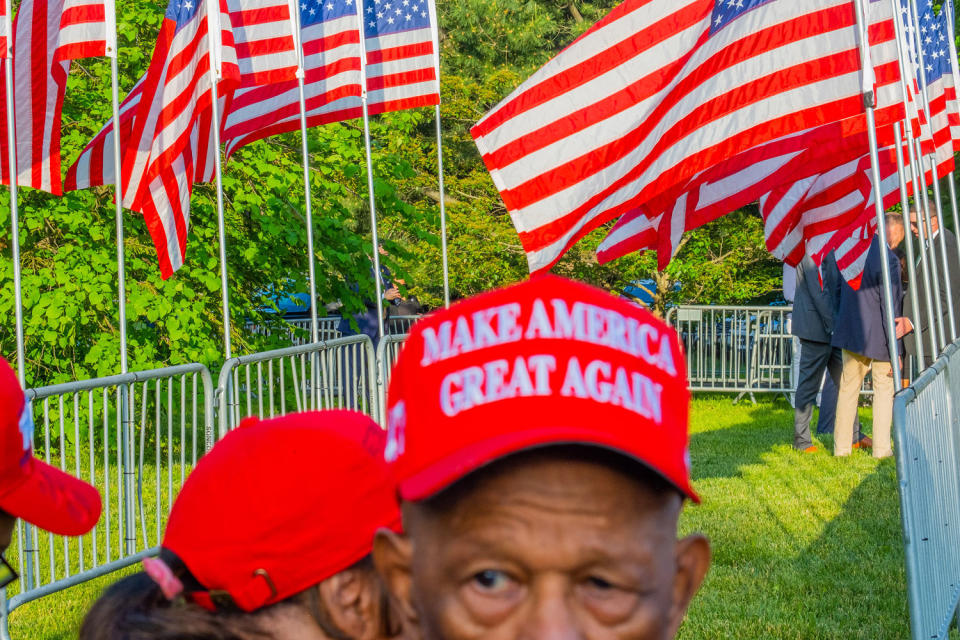
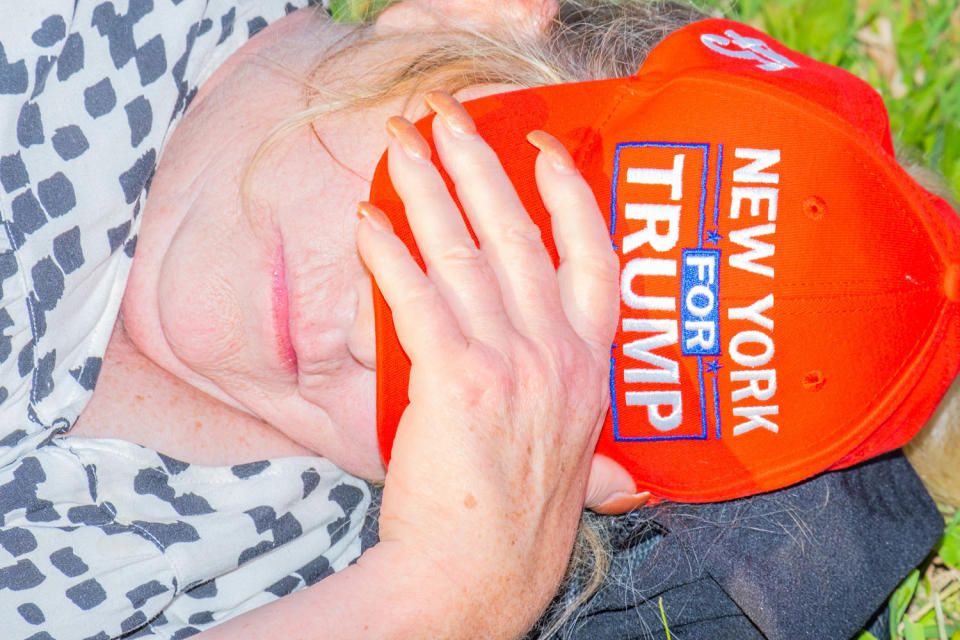
Meanwhile, Democratic Rep. Ritchie Torres, who represents the district in Congress, tweeted that the event “may be IN the South Bronx but it is not OF the South Bronx. Bluntly put, the Trump transplants are much whiter than the locals of the South Bronx, which is almost entirely Latino and Black.”
The Rev. Kirsten John Foy, president and CEO of The Arc of Justice, said while taking part in a counterprotest outside the rally that the idea that Trump is making inroads with communities of color was “a false narrative.”
“They’re pointing to polls that have questionable methodology,” Foy said. “They’re saying that Trump is increasing his support among Blacks and among Latinos, and we just see no evidence of that on the ground. As a matter of fact, people who were passing by wanted to know why we were here, and we told them why, and they decided to stay and join us, because nobody who is authentically from the Bronx is willing to co-sign hatred and xenophobia and misogyny and all of the things that this guy represents.”
Tim Rios, a Bronx resident who was walking through Crotona Park hours before Trump’s address, said, however, that he found no problem with Trump’s coming to address his community.
“I don’t think he was that bad of a president,” Rios said, noting the stimulus payments that went out under Trump while adding that some of the concerns people had about him were overhyped. “Biden’s in right now, and what’s going on? Nothing different.”
This article was originally published on NBCNews.com


